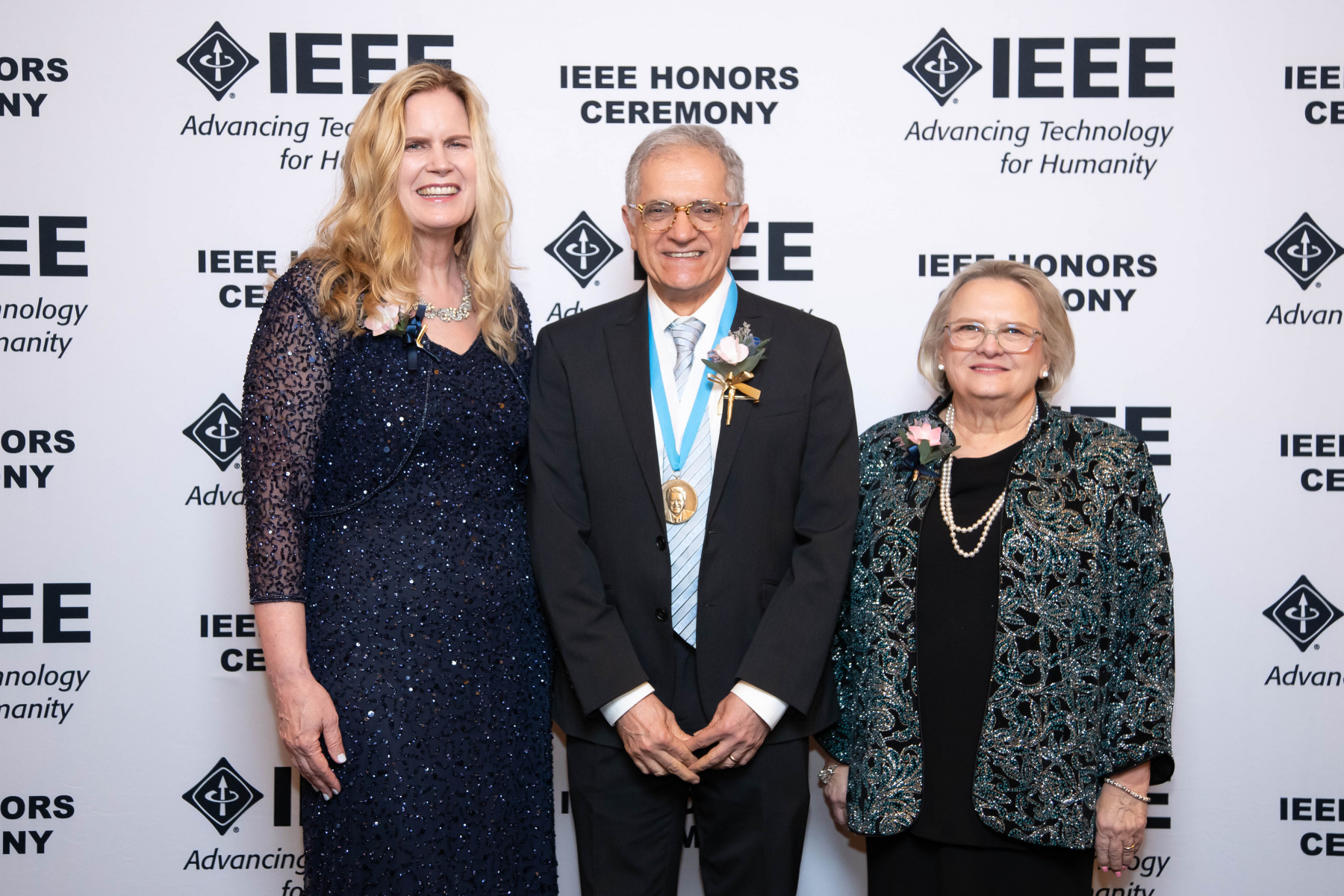Kamal Sarabandi receives IEEE Dennis J. Picard Medal for Radar Technologies and Applications

Kamal Sarabandi has been awarded the 2025 IEEE Dennis J. Picard Medal for Radar Technologies and Applications “for sustained contributions to advancing radar science and technology for remote sensing, automotive, and through-the-wall applications.” IEEE Medals are the highest awards that the IEEE presents on behalf of the IEEE Board of Directors.
Sarabandi has been making waves in the field of radar technology for over 40 years, since he was first introduced to the technology during his drafted military service in Iran. He quickly became enthralled with the potential of radars and decided to pursue his graduate degrees at the University of Michigan, where he would spend his prolific career.
Sarabandi developed radars to measure and model many aspects of the Earth’s surface, including vegetation, terrain, soil moisture, ice depth, and snowpack. These technologies have provided insights into global warming and been used in NASA missions. He developed the first method for low-flying aircraft to detect power lines in cluttered environments, using the electromagnetic signature of the braided wires. He is also known for designing radar systems that can see through walls, prevent automobile collisions, and detect concealed weapons.
Sarabandi’s research strategy has led him to contribute to a huge variety of engineering and science topics, including natural resource management, space exploration, and medicine. While some researchers prefer to stick to one subject that they continuously drill deeper on, Sarabandi finds the most fulfillment by exploring many interests and pursuing “low-hanging fruit” in different areas.
“By applying your knowledge to a slightly different area… you can quickly and immediately make some contribution,” he said.
Over the course of this work, Sarabandi has published over 1100 journal and conference papers, earned 35 best paper awards, mentored over 75 Ph.D. students and postdoctoral researchers, published over 29 patents, and co-founded four startup companies. He wrote the free textbook Foundations of Applied Electromagnetics. He was the 2015–2016 President of IEEE Geoscience and Remote Sensing Society and served on the NASA Advisory Council for two terms.
Sarabandi is a member of the National Academy of Engineering, the National Academy of Inventors, the American Association for the Advancement of Science, and was recently recognized as one of the inaugural members of the IEEE Legends of Electromagnetics. He previously received the Ellis Island Medal of Honor, the IEEE Electromagnetics Award, the IEEE Judith A. Resnik Award, the Humboldt Research Award, and the U-M Rackham Distinguished Faculty Achievement Award. He has been named the Rufus S. Teesdale Professor of Engineering and the Fawwaz T. Ulaby Distinguished University Professor of Electrical Engineering and Computer Science.
“I cannot think of another candidate more qualified for this recognition,” said Fawwaz Ulaby, Emmett Leith Distinguished University Professor Emeritus and Sarabandi’s thesis advisor. “Professor Sarabandi is an exemplary academician and entrepreneur who has conducted his career and business with the highest level of integrity and has made significant contributions to the advancement of our nation through science, education, and entrepreneurship.”
Sarabandi recieved the award during the in-person IEEE Vision, Innovation, and Challenges Summit and Honors Ceremony at the Hilton Odaiba in Tokyo, Japan on April 23-24, 2025. Learn about his work and listen to his acceptance speech here.
Read more about Kamal Sarabandi’s personal and professional journey.
 MENU
MENU 






